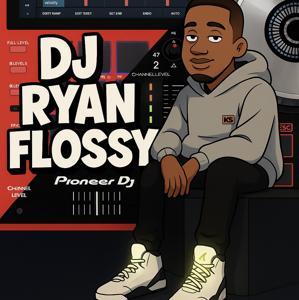Drake and Kendrick might not be dropping new diss tracks this week, but listeners, the feud is still shaping everything around them, and I’m Patrick, obsessing over every move like always.
Right now, the big Drake storyline is how he’s trying to reclaim the narrative post‑battle with this rumored new era built around his Iceman album. Outlets like Now Toronto report that Drake has been teasing Iceman with cryptic Instagram carousels, revenge quotes, and that handwritten “It’s time to move, isn’t it?” note, which fans instantly connected to him “moving” past the Lamar fallout and into a cold, calculated comeback mode. Social posts showing “Iceman is Drake” and resurfaced leaks like the Pressa collab National Treasure have stan accounts spinning it as Drake icing over the damage from Kendrick’s run and stepping back into super‑villain form.
At the same time, hip‑hop blogs like HotNewHipHop say the Iceman title itself has sparked backlash because of the ICE–immigration controversy in the U.S., with some people calling the name tone‑deaf and others defending him as over‑criticized. That debate has slid right back into the Drake vs. Kendrick framing: Kendrick fans using it as more “moral high ground” ammo, Drake die‑hards calling it nitpicking after they feel he already took enough hits in the feud.
On social media, X and TikTok are still running “who really won?” threads off old clips. Every time a new Drake rumor drops, Kendrick fans flood replies with Euphoria and Not Like Us references, while Drake fans counter with streaming stats, his continued chart presence, and this Iceman rollout as proof he’s unfazed. NBA talk even pulled the feud back into the spotlight again: as the Times of India covered, former player Brandon Jennings compared Canadian hoopers to Drake in the Kendrick feud, saying they’d “fold under pressure,” and Drake clapped back on Instagram, tagging Shai Gilgeous‑Alexander after a monster game. Fans immediately treated it like Drake low‑key reminding everyone he’s still willing to jab when he feels disrespected, Kendrick or otherwise.
On Kendrick’s side, the energy is quieter but smug. Fan pages and Reddit threads lean into the idea that he “said what he said” and doesn’t need to address Drake any further. Any Drake legal dust‑up or public L still gets framed under the Lamar shadow, like a long echo of that Super Bowl victory lap performance people keep pairing with the diss run.
So even without fresh tracks, the feud is living on through the way every Drake move gets judged against Kendrick’s perceived win, and every Kendrick silence gets treated as undefeated confidence.
Thanks for listening to the Drake versus Lamar podcast, listeners. Make sure you subscribe, come back next week for more drama, more updates, and more obsessive deep dives. This has been a Quiet Please production, and for more from me, check out QuietPlease dot A I.
For more http://www.quietplease.ai
Get the best deals https://amzn.to/3ODvOta
This content was created in partnership and with the help of Artificial Intelligence AI






















